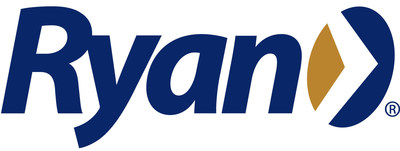Subjects: LAW, LEG
United States Supreme Court Hears Arguments in Challenge to Quill
DALLAS, April 24, 2018 /PRNewswire/ -- On April 17, the United States Supreme Court ("Court") heard arguments in South Dakota v. Wayfair?a test case to invalidate the physical-presence standard established by National Bellas Hess v. Dep't of Revenue, 386 U.S. 753 (1967) and affirmed by Quill Corp. v. North Dakota, 504 U.S. 298 (1992). Under National Bellas Hess and Quill, sellers who do not have a physical presence in a state or other taxing jurisdiction cannot be compelled to collect the jurisdiction's sales or use tax.
In Quill, the Court invited Congress to exercise its authority under the Commerce Clause to determine whether, when, and to what extent a state may require out-of-state sellers to collect the state's sales or use tax. In the 26 years since Quill, states?and frequently brick and mortar sellers?have urged Congress to pass legislation that would allow the states to require remote sellers to collect tax. While such legislation has been repeatedly introduced, none of it has ultimately become law.
Frustrated with the loss of tax revenue to online sales, many states have expanded the definition of "physical" presence to include click-through representation (having an in-state website that receives commissions), affiliate presence (having an affiliated company that accepts returns or sells similar goods or services and uses a similar trade name), software presence (having software that resides on customers' computers in the state), and economic presence (deriving receipts in a state that exceed a threshold amount).
At issue in Wayfair is South Dakota's economic presence standard, which imposes an obligation to collect the state's tax if an out-of-state seller has South Dakota receipts of more than $100,000 or 200 separate sales to customers in South Dakota during a year.
During oral arguments, the Court questioned the cost of complying with tax collection obligations imposed by 12,000 taxing jurisdictions and its effect on business, especially smaller sellers. To comply with sales tax laws and avoid surprise assessments, a seller must know what is taxable in a state (and in some cities and counties that have their own tax ordinances), whether the amount subject to tax includes transportation or other costs, what is not taxable, the applicable tax rate(s), which types of companies or organizations can claim tax exemptions, the records required to document transactions, and the required document-retention period. To add complexity to the cost of compliance, state laws define goods, services, and exemptions differently. For example, sunscreen is an exempt over-the-counter drug in Texas but is excluded from the over-the-counter drug exemption in Tennessee as a "hygiene product." Plus, compliance costs also include the time and expense to prepare for, deal with, and contest state and local tax audits.
To counter the argument that tax-collection compliance is overly burdensome on remote sellers, South Dakota pointed out that it and 22 other states are members of the Streamlined Sales Tax Agreement ("Streamlined"). The Streamlined states have developed uniform definitions, including definitions for delivery charges, purchase price, sales price, clothing, candy, prepared food, and drugs, to simplify compliance. The opponents responded that the most populous states?California, Texas, Florida, New York, Pennsylvania, and Illinois?have not adopted the Streamlined Agreement simplifications.
States were encouraged to challenge Quill after Justice Anthony Kennedy invited its reconsideration in his concurring opinion in Direct Marketing Association v. Brohl, 575 U.S. __ (2015). That case considered whether the state of Colorado could require remote sellers to file annual reports of taxable purchases with the Department of Revenue, without violating the Tax Injunction Act or Quill. The Supreme Court unanimously held that the Colorado law did not violate the Tax Injunction Act and remanded the case to the 10th Circuit Court of Appeals. The 10th Circuit ultimately upheld the notice and reporting requirements, holding that they were not discriminatory and did not unduly burden interstate commerce. (In addition to Colorado, Alabama, Kentucky, Louisiana, Oklahoma, Tennessee, and Vermont now require non-registered out-of-state sellers to send similar reports to customers, and/or the department.)
After reviewing the Justices' questions during the April 17 hearing, it appears they have a variety of concerns, including the merits of retaining the Quill physical-presence standard and the potential impacts on the business community and interstate commerce if Quill is overturned. We anticipate an opinion by late June. If the Court does not overrule Quill, we expect states to continue to redefine physical presence and/or adopt notice and reporting requirements similar to Colorado.
About Ryan
Ryan, an award-winning global tax services and software provider, is the largest Firm in the world dedicated exclusively to business taxes. With global headquarters in Dallas, Texas, the Firm provides an integrated suite of federal, state, local, and international tax services on a multi-jurisdictional basis, including tax recovery, consulting, advocacy, compliance, and technology services. Ryan is a six-time recipient of the International Service Excellence Award from the Customer Service Institute of America (CSIA) for its commitment to world-class client service. Empowered by the dynamic myRyan work environment, which is widely recognized as the most innovative in the tax services industry, Ryan's multi-disciplinary team of more than 2,200 professionals and associates serves over 14,000 clients in more than 45 countries, including many of the world's most prominent Global 5000 companies. More information about Ryan can be found at ryan.com. "Ryan" and "Firm" refer to the global organizational network and may refer to one or more of the member firms of Ryan International, each of which is a separate legal entity.

TECHNICAL INFORMATION CONTACTS:
Randy Hilger
Principal
Ryan
314.721.1300
[email protected]
John Christian
Director
Ryan
512.476.0022
[email protected]
Adina Christian
Director
Ryan
512.960.1148
[email protected]
SOURCE Ryan
These press releases may also interest you
|
News published on and distributed by:



